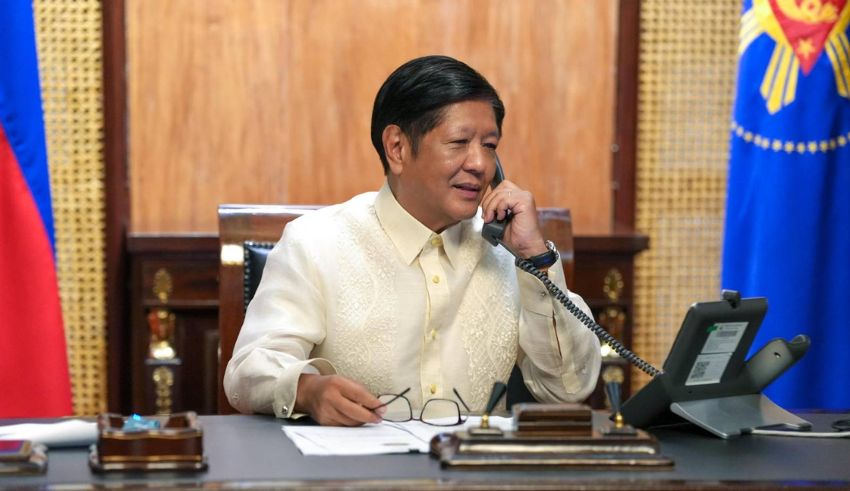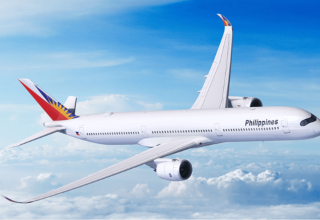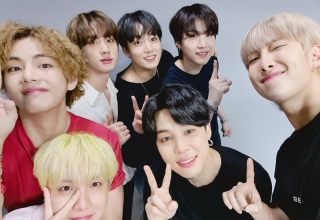
President Ferdinand Marcos Jr. said Tuesday that Sheikh Mohamed Bin Zayed Al Nahyan had pardoned 143 Filipino prisoners serving in the United Arab Emirates. Considered as a great humanitarian deed, this action marks a turning point in the relations between the two countries and provides much-needed help to the families of the pardoned people. Particularly, the law validates the diplomatic and cultural relations two countries—the Philippines and the UAE—have developed following prolonged close cooperation in several fields, including labor, trade, and humanitarian projects.
Monday phone conversations between President Marcos and Sheikh Mohamed Bin Zayed shaped the announcement. Marcos personally commended the UAE president for his good choice to release the Filipino detainees during his speech. He commended the pardon as a noble deed that would be significant help to the relatives of the relevant individuals. Emphasizing the humanitarian nature of the deed, Marcos remarked “I expressed my thanks for the kindness extended to them, particularly their generous pardon of 143 Filipinos, which has relieved many families.”
Building of bilateral relations: a diplomatic turning point
Given the difficulties many overseas Filipino workers (OFWs) encounter overseas, forgiving these offenders is highly crucial for the Philippines specifically. Marcos underlined in his remarks the need for the UAE’s ongoing support and friendship as well as the fact that the pardon marks the strong and expanding political and cultural connections between the two countries.
The two presidents also addressed more general issues of the bilateral relationship on the phone. Marcos praised not only for the UAE’s pardon of Filipino individuals but also for their consistent humanitarian help to the Philippines, especially in view of typhoons and floods. Underlining the need for ongoing collaboration in sectors including trade, investment, labor, and humanitarian relief, Marcos said, “Our nation’s share strong bonds, rooted in the values and aspirations of our peoples, and I look forward to strengthening this partnership in the years ahead.”
Constant encouragement of overseas Filipino workers (OFWs)
President Marcos also took advantage of the opportunity to highlight the excellent achievements of Filipinos employed by the United Arab Emirates. Vital component of UAE’s workforce, many Filipino expats are commended for their loyalty and commitment. “It is always motivating to hear how our Filipino workers support the UAE and keep shining,” he said. The UAE is among the most significant locations for migrant Filipino workers, with around a million Filipinos employed in a variety of fields including healthcare, hospitality, construction, and domestic tasks.
Long praised for their brilliance and dedication, the Filipino population living in the UAE boasts various OFWs in notable roles or in major businesses, therefore boosting the economy of the United Arab Emirates. Marcos’ compliments for their efforts help us to remember the intimate human encounters between the two countries, therefore enhancing the diplomatic and trade ties growing over years.
A diplomatic move among continuous difficulties
Given the legal complexity OFWs negotiate overseas, the pardon of 143 Filipino criminals is really important. Filipinos have been harshly condemned for a variety of crimes in the United Arab Emirates (where the death sentence is still accepted). Still, the UAE’s past of providing clemency—as seen here—showcases the nation’s resolve to keep tight diplomatic ties with the Philippines and acknowledge the constructive contributions of Filipino laborers.
The UAE has not only given Filipinos this pardon but also other such previous deeds in the past. Two of the three Filipinos UAE pardons in 2023 got death sentences. The capacity of the Philippine government to grant such pardons highlights the efficiency of its diplomatic channels in promoting the welfare and rights of overseas Filipino workers.
Though the UAE shows impressive development, the Philippines is aware of the legal problems her citizens encounter elsewhere in the Middle East. This arises one week after a Filipino worker hired by Saudi Arabia was found guilty of murder. The multiple examples in the UAE and Saudi Arabia draw attention to the continuous hazards that OFWs—especially in nations with severe sanctions for specific violations—have to contend with.
Travel Destination Popular among Filipinos Working There: United Arab Emirates
For Filipino immigrants looking for jobs overseas, the United Arab Emirates remains the first choice. Second in Asia among OFW destinations after Saudi Arabia, the UAE rated using Philippine Statistics Authority data. Underlining the tight relations between the two nations, the notable Filipino population in the UAE is around one million and among the biggest expatriate communities in the nation.
From building and cleaning to healthcare and education, Filipino UAE workers find themselves in a broad spectrum of fields. Many OFWs have prosperous lives in the United Arab Emirates; some even hold significant positions in many companies and businesses. Many Filipinos looking for work overseas are drawn to the UAE by the robust legal protections for workers and dedication to protecting labor rights.
Regarding the UAE’s amnesty, President Marcos strengthened his determination to enhance the cooperation between the two nations. From labor to trade to investment, both countries benefit tremendously from continuous cooperation in all spheres. Over the years, both countries have engaged in many commercial projects; the UAE is typically among the top commercial partners of the Philippines in the Middle East.
Apart from economic relations, the United Arab Emirates and the Philippines enjoy close cooperation on humanitarian projects. Following natural disasters, the UAE has given the Philippines much-needed relief; the two nations have also worked on other international projects meant to support peace, stability, and development in the area.
The comments of President Marcos on pardon of 143 Filipino inmates expose not just a moment of humanitarian relief but also the power of a bilateral relationship yet under growth. Looking forward, the links of friendship, shared values, and mutual respect will characterize their diplomatic and economic collaboration; so, there is optimism for even more favorable changes in the following years. Future of both countries is bright.























